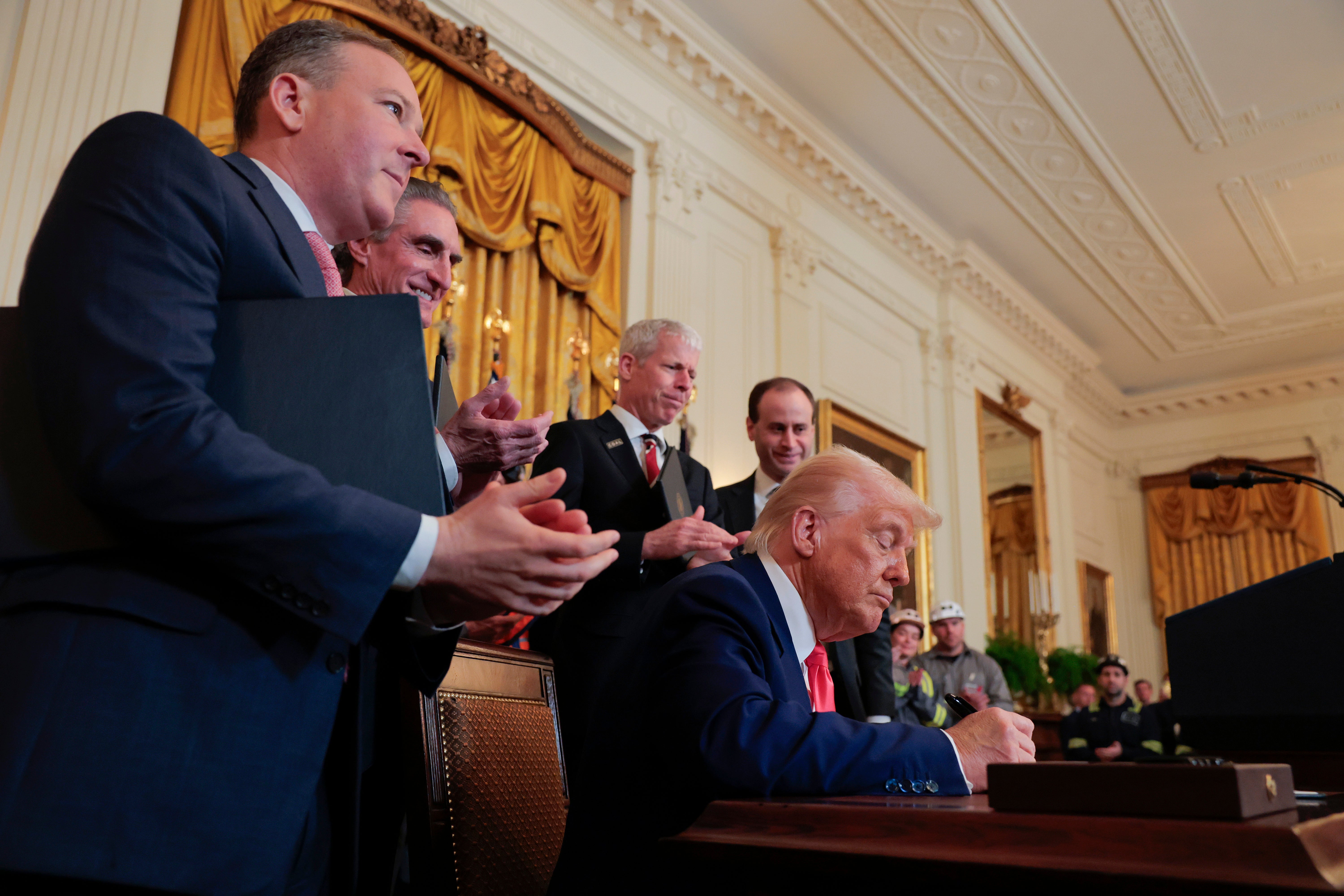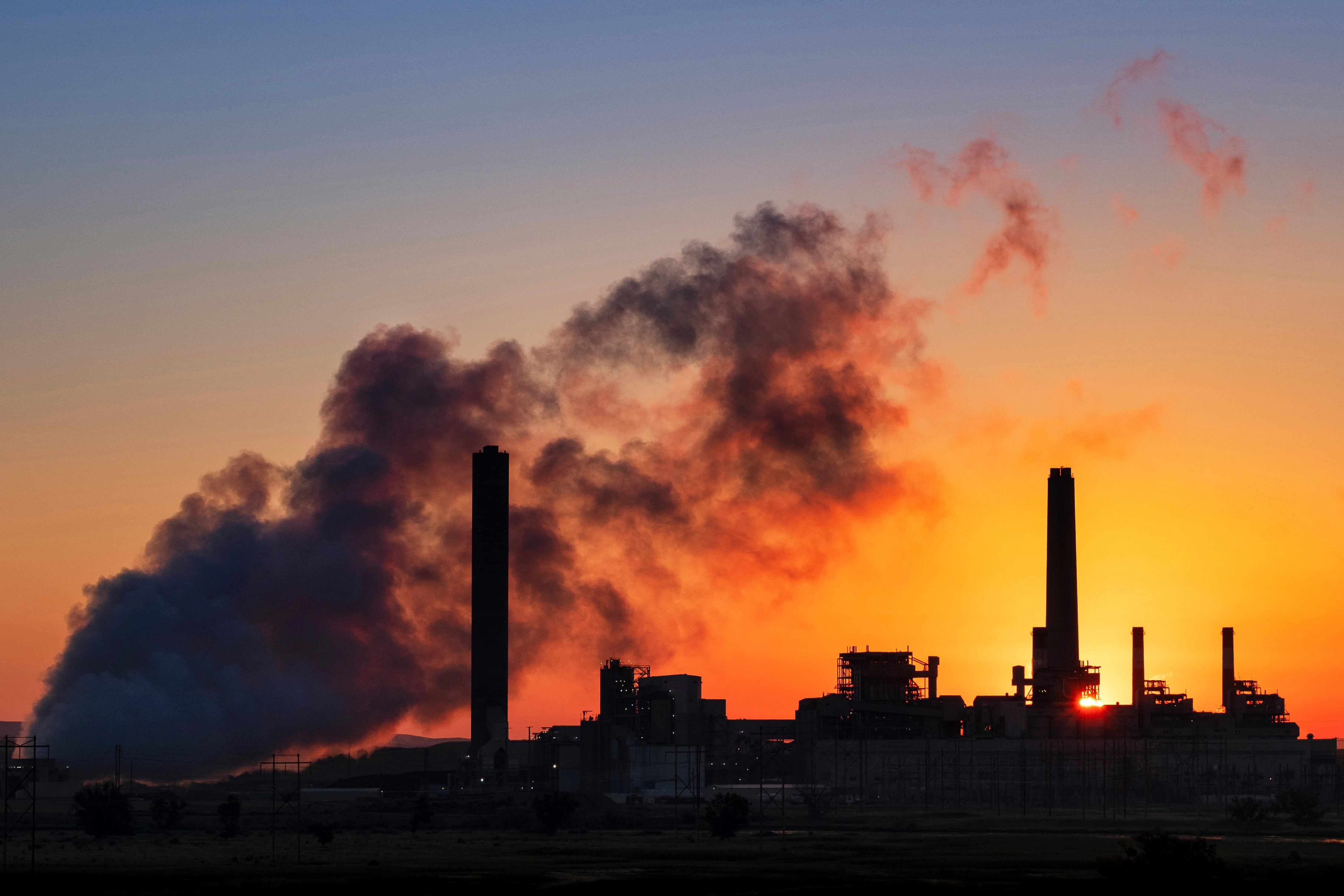President Donald Trump signed an executive order aimed at ramping up American coal production this week - but environmental advocates say it will hurt Americans’ wallets and Mother Nature.
The president said the move would revive an industry “that was abandoned despite the fact that it was the best, certainly the best in terms of power, real power.”
“I call it beautiful, clean coal,” he said. “We’re ending Joe Biden’s war on beautiful, clean coal, once and for all.”
But, environmentalists say increased coal-fired plants would harm Americans — and that the president’s terminology is egregiously inaccurate.
“There is no such thing as clean coal,” former EPA Admin. Gina McCarthy said in a statement shared with The Independent. “Just as Trump’s tariffs are hitting Americans’ wallets, his administration is wasting taxpayer dollars to prop up an expensive, dangerous, and dirty industry when we have abundant, cheaper, better, and safer clean energy.”
Jason Rylander, of the Center for Biological Diversity’s Climate Law Institute, said that the orders take the president’s worship of the “dirty” fossil fuel industry to a “gross and disturbingly reckless new level.”
“Forcing old coal plants to keep spewing pollution into our air and water means more cancer, more asthma and more premature deaths. This is yet another assault on efforts to preserve a livable climate, and it’s now abundantly clear that Trump’s promise to give America the cleanest air and water was a boldfaced lie,” he said.
During his second presidential run, Trump had said he was in favor of clean air and water, although he has shied away from any complex discussion on human-caused climate change and its effects.

In addition to emitting carbon dioxide and other pollutants, coal production also releases particulate matter that can cause respiratory and cardiovascular issues. Exposure to that particulate matter, known as PM2.5, is associated with increased risk of death.
Exposure to coal PM2.5 is associated with a risk of mortality more than double that of exposure to PM2.5 from other sources, researchers found in 2023.
A report from the Clean Air Task Force found that nearly 3,000 deaths each year are attributable to fine particle pollution from U.S. power plants. These consequences are in addition to health impacts tied to climate change caused by the fossil fuel industry’s planet-warming greenhouse gas emissions.
Notably, the EPA is reconsidering Particulate Matter National Ambient Air Quality Standards it says “hut down opportunities for American manufacturing and small businesses.”
Exposure to mercury from coal plants can damage brain function. On Tuesday, Trump also granted certain coal planets the ability to comply with less stringent standards for mercury, lead, nickel and arsenic emissions. The Environmental Protection Agency’s Mercury and Air Toxic Standards has helped mercury emissions drop by 86 percent since 2017. The EPA is also reconsidering the regulation.

In addition to health costs, coal production is also more expensive than producing renewable energy, including solar and wind. The majority of domestic coal production comes out of Wyoming, West Virginia, Pennsylvania and Illinois.
A report by nonpartisan energy and climate policy think tank Energy Innovation: Policy and Technology found that 99 percent of all U.S. coal plants are more expensive to run than new renewables.
Furthermore, the Interamerican Association for Environmental Defense says the use of coal becomes “economically unviable because the market price is not enough to cover the repair of the damage caused.”
“Coal use has declined because of the high cost of operating coal plants, and no Executive Orders will change that market reality. Increased use of coal will only be possible through subsidies – funded either by using taxpayer money or by increasing costs for American families who are already struggling with high power bills,” Environmental Defense Fund Director Ted Kelly said.
“Clinging to a 19th century power plan makes no sense for 21st century America – it will only mean cost shocks in people’s electric bills, losing renewable energy jobs, surrendering U.S. manufacturing of clean energy solutions, and a public health and climate disaster,” he added.
Trump accused of ‘market manipulation’ with tariff pause: ‘WTF! Who’s in charge?’
Federal Reserve could be in 'difficult' spot with higher prices, slower hiring
Bill Ackman teased after hailing president’s ‘Art of the Deal’ tariffs climbdown
Facebook whistleblower testifies that company undermined national security
Fox Business reporter says it’s the ‘White House who capitulated’ on tariffs
Trade war latest: Trump pauses reciprocal tariffs but hikes duties on China to 125%







